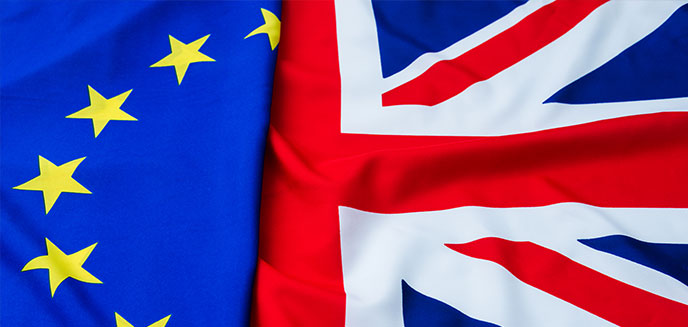The UK left the European Union at the end of December 2020. This means there will be important changes that may affect your hair or beauty business and how it operates. This blog post summarises what we know so far. You can also:
- Use the government’s Brexit checker tool to find out what you should be doing.
- Sign up here to get the government’s Brexit updates for your business.
Information and advice for hair and beauty businesses can be found on the CTPA (Cosmetic, Toiletry and Perfumery Association) website.
Find specific information for businesses in Wales, Scotland and Northern Ireland:
- Wales (The Welsh Government’s ‘Transition Portal’ offers a range of advice for businesses.)
- Scotland (The Scottish Government website provides information on the ten key things you need to know.)
- Northern Ireland (NI has in effect remained in the EU's single market for goods. England, Scotland and Wales have left the EU's single market for goods.)
The four nations have also set up helplines:
- Businesses in England: 0800 998 1098
- Businesses in Scotland: 0300 303 0660
- Businesses in Wales: 0300 060 3000
- Businesses in Northern Ireland: 0800 181 4422
You can register on the government website to access videos on various Brexit-related topics that may affect your business.
This blog post covers:
- Brexit and employees from the EU
- Brexit and taking on new employees
- Do you need to replace an .eu domain name?
- Importing products and supplies from the EU
- What hasn’t changed: workers’ rights and GDPR
- Checklist
You're not alone with the NHBF
The NHBF will continue to monitor the effects of Brexit on the hair and beauty industry and will be offering expert support and advice to our Members in the coming months. Not yet a Member? Find out more about the amazing benefits available for less than 80p a day.
Benefits include:
- Free coronavirus advice, legal support and documentation for the hair & beauty industry.
- Free dedicated and friendly membership helpline for everyday business support.
- Free 24/7 legal and commercial helpline.
- Free annual 15-minute business coaching call.
- Free legal expenses insurance up to £50,000 (excess £2,000).
- Free 15-minute business coaching phone call every year.
- Free Member-only in-depth guides on all aspects of running your business.
- Free health & safety pack downloads.

Brexit and employees from the EU
If you have employees from the EU, they may need to apply to the EU Settlement Scheme. It’s free to apply.
EU, EEA or Swiss citizens and their families can apply to the EU Settlement Scheme to continue living in the UK after 30 June 2021. Individuals can also apply if they’re the family member of an eligible person of Northern Ireland.
The EEA includes the EU countries and also Iceland, Liechtenstein and Norway.
Individuals may be able to stay in the UK without applying (Find out more on the government website.) For example, Irish citizens or those who already have indefinite leave to enter the UK or remain here.
You can sign up for email updates from the government about the scheme.
If an application is successful, settled or pre-settled status will be given.
Settled and pre-settled status
If the applicant has lived in the UK for a continuous five-year period (known as ‘continuous residence’) they will usually get settled status.
If the applicant does not have five years’ continuous residence, they will usually get pre-settled status. This can be changed to settled status when the applicant has five years’ continuous residence.
Find out more about settled and pre-settled status on the government website.

How to apply
The deadline for most people to apply to the EU Settlement Scheme was 30 June 2021.
If you or your family are from the EU, Switzerland, Norway, Iceland or Liechtenstein, you can still apply if you or a family member were living in the UK by 31 December 2020. You must also either:
- meet one of the criteria for a later deadline to apply
- have ‘reasonable grounds’ for not applying by 30 June 2021
Employer toolkit
As an employer, you are not required to check that your employee has applied. However, you may wish to let them know about the scheme (you are not legally required to do so).
Download an employer toolkit about the EU settlement scheme from the government website
Your employee does not have to tell you they have applied for settled status, or the outcome of their application. Also:
- You must not discriminate against EU citizens because of the UK’s decision to leave the EU. This applies to current employees and when you are recruiting new employees.
- You cannot make an offer of employment or continued employment based on whether or not the person has applied for settled status.
- There will be no change to the rights and status of EU citizens living in the UK until after 30 June 2021.
Find out more about this on the government website.

Brexit and taking on new employees
A new immigration system will apply to people arriving on or after 1 January 2021. You can sign up for email alerts from the government to stay informed.
A UK points-based immigration system was started on 1 January 2021. Employers will need to register as a ‘licensed sponsor’ to hire eligible employees from outside the UK. Anyone you want to hire from outside the UK, excluding Irish citizens, will need to apply for permission in advance. Find out more about this on the government website.
Do you need to replace your .eu domain name?
Does your website have ‘.eu’ in its name (for example, ‘www.hairsalon.eu’)? If so, be aware that you may not be able to hold, register or renew a .eu domain name from 1 January 2021.
You can only register or hold .eu domain names if you are:
- An EU/EEA citizen wherever you live. EU citizens who are resident in the UK are able to retain their .eu addresses.
- Not an EU/EEA citizen but resident in the EU/EEA.
- An organisation or business that is established in the EU/EEA.
Find out more on the government website.
Registering and renewing .eu domain names in the UK
Importing products and supplies from the EU
There have been reports of delays and extra costs for businesses that import products and other supplies from the EU. The NHBF is aware of these concerns and is speaking to the manufacturers and suppliers of products via CTPA (Cosmetic Toiletry and Perfumery Association) and HBSA (trade association for suppliers to the hair and beauty industry).
The government has provided a step-by-step guide to importing goods which includes what you now need to do to get your business ready to import.

What won’t change?
There are some things that won’t change. Two major examples are the tough data protection rules under GDPR and our current employment laws – both of these are here to stay:
- GDPR is now part of UK law.
- The government has pledged to protect UK workers so they get the same or better rights than EU workers.
Discover what rights your employees have.
Download our detailed Members-only guide to GDPR.
Download our GDPR toolkit which includes templates to help you comply with GDPR.
Not yet a Member? Join us now for less than 80p a day to access this user-friendly in-depth guide and make sure you are complying with GDPR.
Checklist
- Make sure you understand new employment laws in relation to workers from the EU.
- Any ‘.eu’ domain names you own may have to be changed.
- New importing rules are in place – make sure you follow them.
- Employment rights and GDPR laws will not change.
You may also be interested in...
Data protection laws got tougher when GDPR came into force in 2018. Your hair/beauty salon or barbershop must understand and comply with additional data protection laws as set out in GDPR. NHBF Members can download our free in-depth guide and templates. Find out more.
